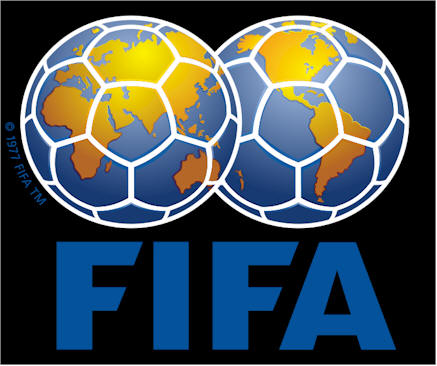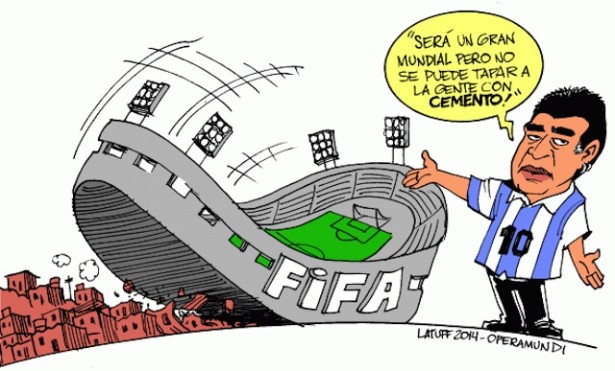El Lado Oscuro de la FIFA

La FIFA manda en todo el mundo y su palabra es literalmente la ley.
Cualquier país que quiera ser anfitrión de la Copa del Mundo debe prometer de antemano que no cobrará impuestos a la FIFA ni a ningún organismo que actúe en su nombre.
Este privilegio coloca a la federación por encima de la ley y priva a los países de miles de millones de dólares en ingresos.
Mientras que los anfitriones gastan fortunas en infraestructura, la FIFA gana sin invertir.
De acuerdo con reportes de la BBC, los ingresos que tienen los jugadores profesionales por motivo del Campeonato Mundial también se encuentran exentos de cualquier gravamen.
Además existen especificaciones legislativas concretas a las que se obligan los países anfitriones.
Brasil, quien durante años mantuvo una restricción a la venta de alcohol en los estadios por la alta tasa de muertes durante los partidos, se vio forzada a cambiar su ley por la FIFA.
La enmienda fue bautizada por los medios como la “Ley Budweiser”, ya que la empresa que vende cervezas es uno de los principales patrocinadores del organismo futbolístico.
De manera similar, durante la contienda mundialista del 2010 en Sudáfrica, la FIFA obligó a la creación de cortes especiales para resolver delitos cometidos a los turistas o reporteros durante el evento.
La impartición de justicia por estas cortes fue polémica pues, en su afán de impresionar, impartía con celeridad severas sentencias por robos menores cometidos contra extranjeros. Por ejemplo, por robar un celular a un turista, un joven fue condenado a cinco años de prisión tras dos días de juicio.
El mensaje es contundente, la FIFA manda en todos lados.
Millonarios sin fines de lucro
Continua Leyendo:
A World Cup for corporations
wagingnonviolence.org
wagingnonviolence.org

A political cartoon by Carlos Latuff depicting FIFA’s destruction of neighborhoods in Brazil. (Carlos Latuff)
The World Cup 2014 is set to begin today in São Paulo and end on July 13 in Rio de Janeiro. For this
much-anticipated month of soccer, Brazilian citizens have paid a very high price, including the 10 billion reals ($4.47 billion) that FIFA, the Fédération Internationale de Football Association, headquartered in Switzerland, will pocket, which is as much as the two last World Cups put together.
much-anticipated month of soccer, Brazilian citizens have paid a very high price, including the 10 billion reals ($4.47 billion) that FIFA, the Fédération Internationale de Football Association, headquartered in Switzerland, will pocket, which is as much as the two last World Cups put together.
In Brazil there’s always room for soccer. Anywhere. On the street, on the beach, on improvised fields. It is played barefoot, with shoes, in stadiums, as part of a team or among friends. Even the great players, Pelé, Ronaldo, Ronaldinho, or Neymar began playing this way. A visitor to Brazil can find goals in the most inhospitable places, in the countryside, in cities, in the jungle, in indigenous villages or in favelas. But as the sport has turned into an industry, that playful, collective game, with its beauty born of the joy of playing for the sake of playing, has begun to disappear.
The World Cup 2014, which will be the privilege of a few and a headache for many, has sparked unprecedented organizing against FIFA. In 11 of the 12 cities that will host one of the games, social movements have united under the banner of the People’s Committees to demand that citizens’ human rights stop being violated for the sake of an event in which few will be able to participate. Members from all sectors of society and many existing social movements have joined in the organizing, including the São Paulo metro workers, who yesterday, on the eve of the cup, declared a strike to demand higher wages and protest the firing of fellow employees.
No hay comentarios:
Publicar un comentario